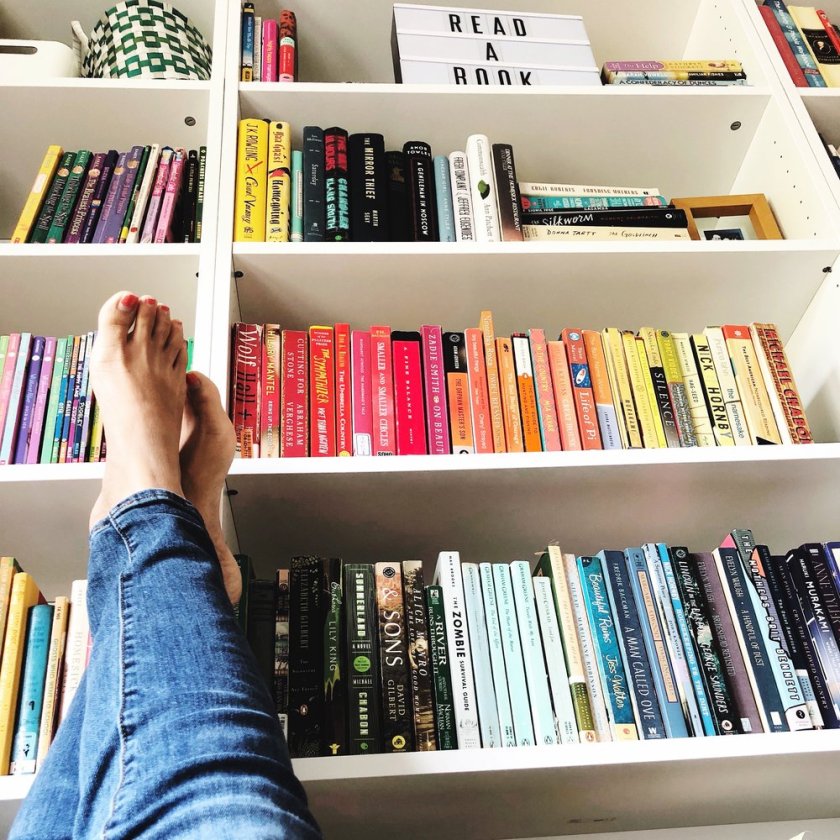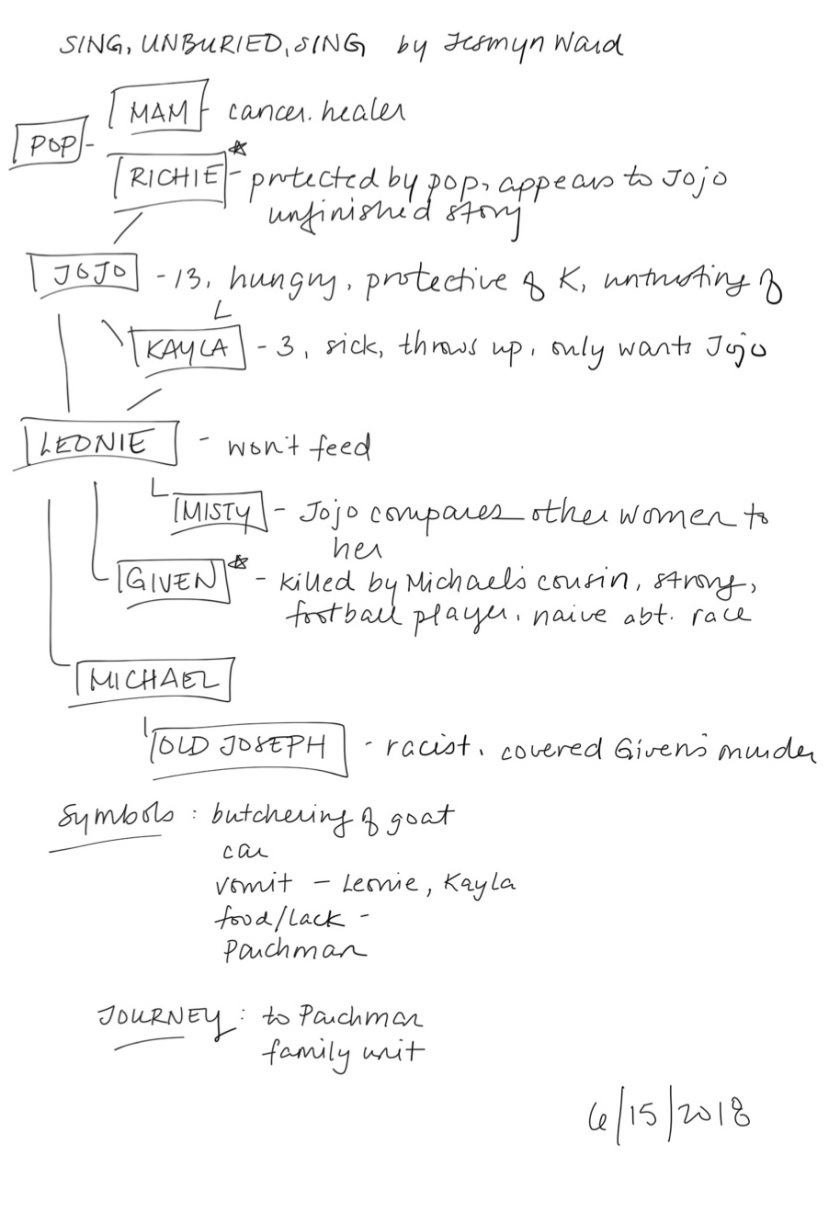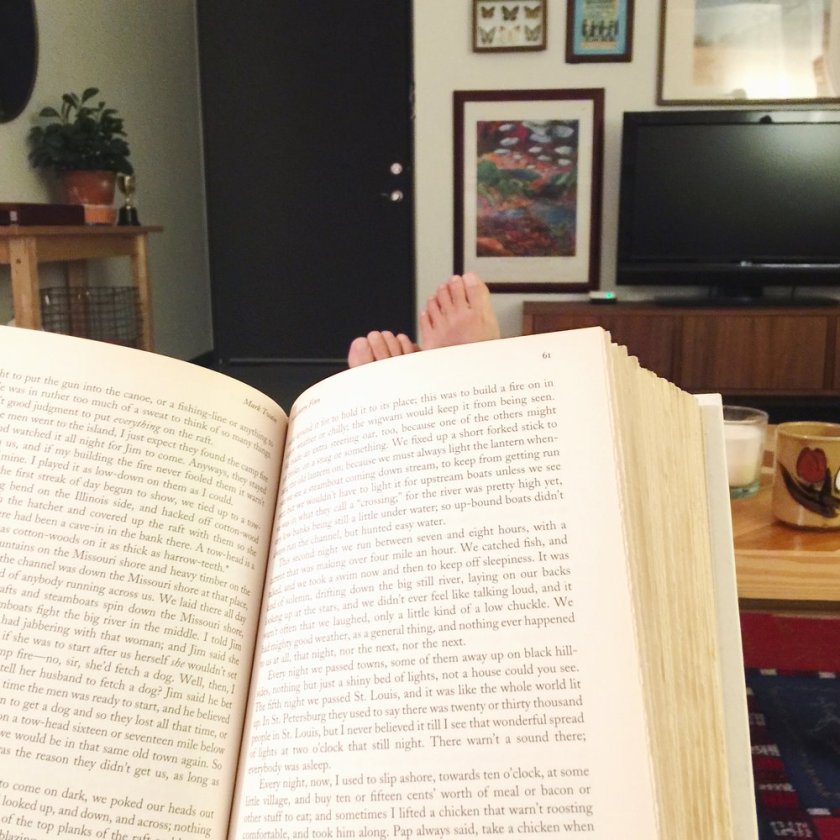

The Hate U Give by Angie Thomas
A high school girl witnesses a police officer shoot her friend. What follows is a thoughtful, empathetic, yet fearless look at police violence and racism in America. I think this should be required reading for every American high school student.
My Sister, the Serial Killer by Oyinkan Braithwaite
DARK satire about a woman who dates and then disposes of men, then needs her sister’s help to clean up the literal and figurative mess. Brilliant.
The Overstory by Richard Powers
Despite the unevenness of the novel’s three parts, I still highly recommend this book for its look at climate change’s impact beyond its effects on us humans. I haven’t seen trees the same way after reading this.
Born a Crime: Stories From a South African Childhood by Trevor Noah
We listened to this as a family during a road trip. The entire family was riveted. Noah is hilarious, of course, but also insightful and generous in his observations on race, economic status, and family. The audiobook makes you feel like you get to hang out with Trevor Noah for hours on end — what could be better?
Where the Crawdads Sing by Delia Owens
This novel has it all — it’s a bildungsroman, a murder mystery, a courtroom thriller. I couldn’t put it down. I encountered Delia Owens’ nonfiction more than a decade ago and it’s fun to see her enter the fiction scene with such a bang.
The Farm by Joanne Ramos
This is about a Filipina woman who agrees to become a surrogate for the wealthy. It examines the tenuous relationship between the rich and those who serve them, asking questions about free will, responsibility, ethics. There’s a section — a guide to the world of nannying for the super-rich from world-weary “Ate” to her young friend — that is so spot-on it left me speechless.
Life After Life by Kate Atkinson (and Transcription)
I haven’t read Atkinson in years (I loved Behind the Scenes at the Museum when I read it long ago), but stumbled upon Transcription, a spy novel whose straightforward narration belies what’s really happening. It reminded me of how much I love Atkinson’s writing (and, in particular, her vocabulary). I picked up Life after Life because I couldn’t get enough after Transcription. Life after Life is quite a different book — it follows the protagonist as she lives, dies, and lives again. (She literally dies dozens of times.) I actually tried reading it ages ago and put it down, but this time, I found it brilliant and quite moving.
Save Me the Plums by Ruth Reichl
This is a fun memoir about the former editor-in-chief of the now-defunct Gourmet magazine. In another life, I would’ve loved to pursue a career in publishing, and this was the perfect voyeuristic look into the industry. After I read this, I devoured three of Reichl’s other books (<—pun intended; all of the books are about food, perhaps most of all).
Exhalation: Stories by Ted Chiang
I picked this up because it appeared on Barack Obama’s book recommendations list and I absolutely loved it. It’s a collection of sci-fi stories that poses questions about humanity and our beliefs about the unknowable. It’s exceedingly smart and gripping. I highly recommend Chiang’s previous collection, Stories of Your Life, as well. After I read “Story of Your Life,” on which the movie Arrival was based, I literally passed it on to half a dozen people and begged them to read it. (I might have made my AP Literature students read it, as well — it’s so good.)
The Dutch House by Ann Patchett
I really love Ann Patchett and snatch up every book she writes as soon as it’s available. This is perhaps my favorite of hers since Bel Canto. It’s a story about a pair of siblings who grow up under the (figurative) shadow of a beautiful house and an evil stepmother, but there’s nothing fairy-tale-like about it. I devoured this in one sitting (which means I stayed up reading half the night so I could finish it).
Atomic Habits by James Clear
The is one of two non-fiction volumes on my list this year, and it’s self-help at its best — Clear succinctly and, well, clearly outlines what it is that helps us establish good habits and break bad ones. I found myself applying his ideas immediately.
Lost and Wanted by Nell Freudenberger
I have a particular love for fiction about science. This was a gripping novel about a scientist whose best friend is somehow communicating from the grave (but it’s not how it sounds). I didn’t love certain aspects of this novel, but like it as a whole.
A Little Life by Hanya Yanagihara
This may, in fact, be the most depressing book I’ve read in my entire life. It’s a story about four friends (but really about two of the four friends, and truly mostly about one). It’s a treatise on abuse and the unavoidable, devastating damage it inflicts not just on the victim but on all who love him. I don’t quite understand why I found this book so irresistible, considering its intimidating length (it is LONG) and its disturbing content, but I had a hard time putting it down.
The Travelers by Regina Porter
I picked this book because of its cover, which made its way around bookstagram, and it was delightfully surprising in both its readability and depth. It follows two intertwined families, hitting issues of race, generational divide, and star-crossed love while remaining entertaining. Really liked this one.
Nothing to See Here by Kevin Wilson
This may be my favorite book of the year. I had heard the hype (everywhere, it seemed) and was skeptical it would live up to everyone’s praises, but it really did. I’m not even going to bother explaining the plot (except to say it includes children who spontaneously combust); just know I found this book delightful — it’s laugh-out loud funny, so fun to read yet poignant, meaningful, and wonderfully written. Highly recommend.
The Most Fun We Ever Had by Claire Lombardo
This is the last book I read this year. I picked it up on the 30th and stayed up until sunrise, reading it all in one go (it’s a thick book!). It’s a multigenerational story about a couple and their daughters. The daughters are ruined because of their parents’ happy marriage — their relationships just can’t measure up. Truthfully, I was reluctant to love this book because the characters are so irritatingly privileged and all their problems seemed of their own making. Nothing of the actual plot seemed relatable. BUT — the emotions underneath the plot are so very real. I found particularly powerfully the ongoing conceit of the parents’ perfect marriage, which upon closer examination is only perfect in that they decide it is (again and again). It’s a self-fulfilling prophecy that is ultimately quite lovely.
To see all 71 of the books I read in 2019, click here.














